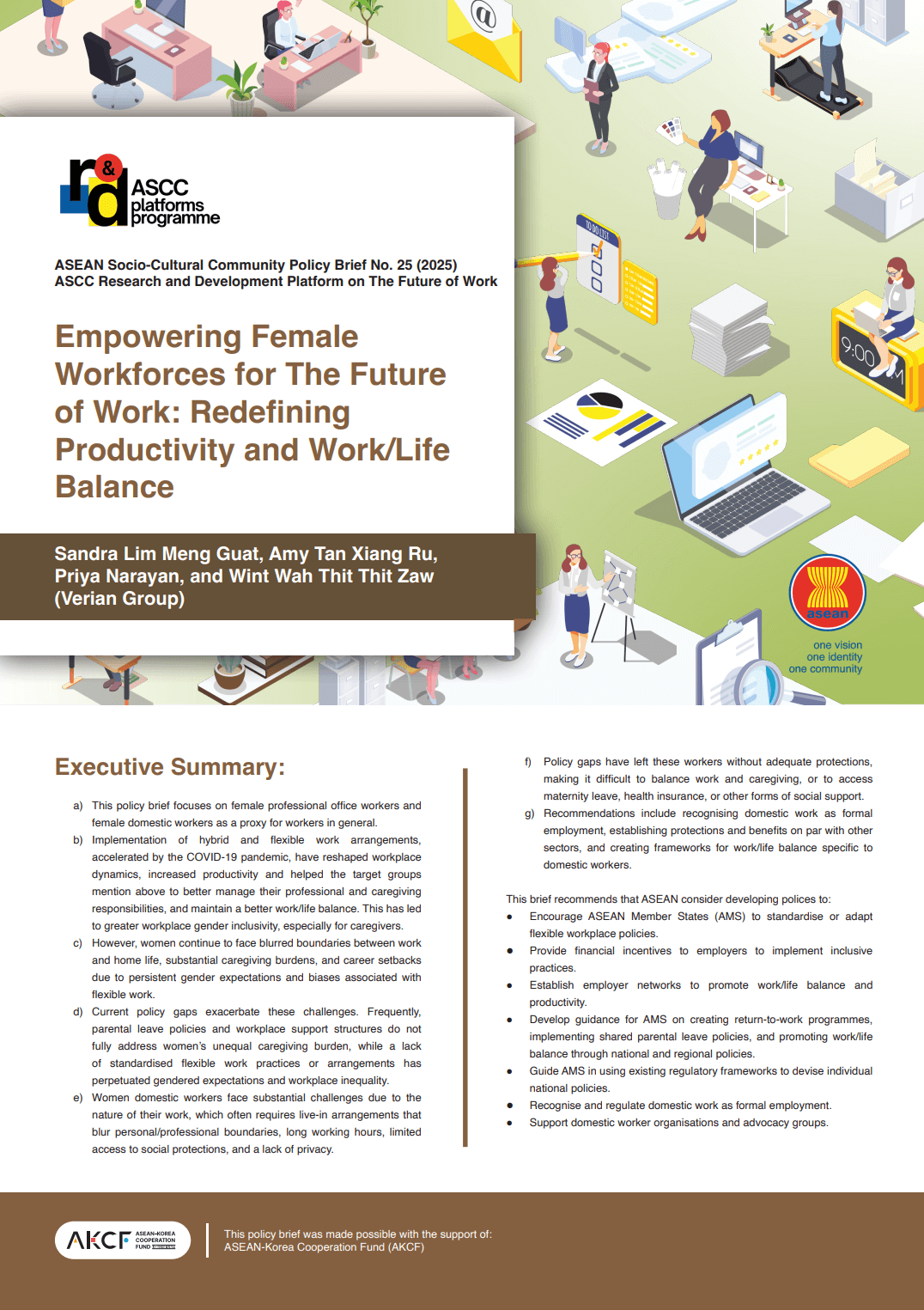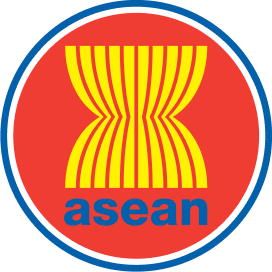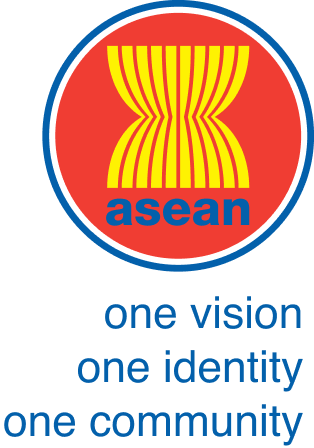

EXECUTIVE SUMMARY
a) This policy brief focuses on female professional office workers and female domestic workers as a proxy for workers in general.
b) Implementation of hybrid and flexible work arrangements, accelerated by the COVID-19 pandemic, have reshaped workplace dynamics, increased productivity and helped the target groups mention above to better manage their professional and caregiving responsibilities, and maintain a better work/life balance. This has led to greater workplace gender inclusivity, especially for caregivers.
c) However, women continue to face blurred boundaries between work and home life, substantial caregiving burdens, and career setbacks due to persistent gender expectations and biases associated with flexible work.
d) Current policy gaps exacerbate these challenges. Frequently, parental leave policies and workplace support structures do not fully address women’s unequal caregiving burden, while a lack of standardised flexible work practices or arrangements has perpetuated gendered expectations and workplace inequality.
e) Women domestic workers face substantial challenges due to the nature of their work, which often requires live-in arrangements that blur personal/professional boundaries, long working hours, limited access to social protections, and a lack of privacy.
f) Policy gaps have left these workers without adequate protections, making it difficult to balance work and caregiving, or to access maternity leave, health insurance, or other forms of social support.
g) Recommendations include recognising domestic work as formal employment, establishing protections and benefits on par with other sectors, and creating frameworks for work/life balance specific to
domestic workers.
RECOMMENDATION
This brief recommends that ASEAN consider developing polices to:
● Encourage ASEAN Member States (AMS) to standardise or adapt flexible workplace policies.
● Provide financial incentives to employers to implement inclusive practices.
● Establish employer networks to promote work/life balance and productivity.
● Develop guidance for AMS on creating return-to-work programmes, implementing shared parental leave policies, and promoting work/life balance through national and regional policies.
● Guide AMS in using existing regulatory frameworks to devise individual national policies.
● Recognise and regulate domestic work as formal employment.
● Support domestic worker organisations and advocacy groups.







